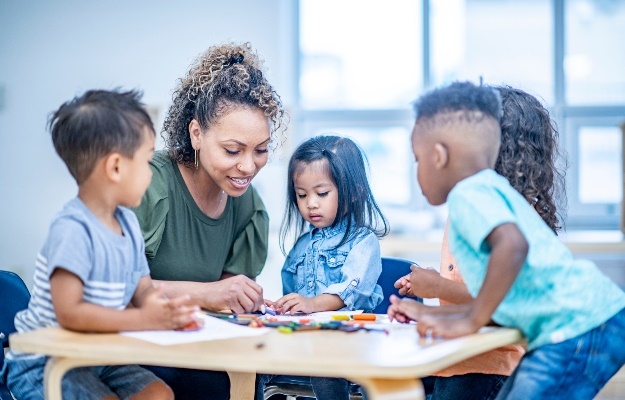
You've done everything you need to do to prepare for your child’s first day of school. You’ve bought the schoolbag, labelled the stationery, ironed the uniform and polished the shoes.
But what if your child isn’t actually ready?
“People often believe children reach the same level of maturity at the same age,” says Anel Annandale, a Cape Town educational psychologist. “But their emotional development can differ.”
That’s why you shouldn’t assume your child is school-ready just because they’ll turn seven in their first year at school, as the government requires.
“School readiness has as much to do with emotional readiness and independence as cognitive ability,” says Johannesburg counselling psychologist Keshnie Lalbahadur.
Here’s what you need to know and how you can prepare your child for school.
DOES YOUR CHILD MEET THESE REQUIREMENTS?
- Physically ready Your child must be able to carry their schoolbag, play with children their age and sit upright at their desk without getting tired, says educational psychologist Anel Annandale. “Their physical development will determine if they can hold a pencil, use a pair of scissors and whether they’re capable of learning to write.”
- Understand basic concepts : If they know basic shapes (circles, squares and triangles) it will help them recognise numbers. They should be aware of the passage of time (we have breakfast, then we play, later we have our cooldrink and then it’s almost lunchtime). This will help them know what to expect at certain times of the school day. They should also be able to recognise colours.
- Can exercise self-control: By the time your child goes to school they should have learnt to share their toys and sweets and say sorry if they hurt a friend, says counselling psychologist Keshnie Lalbahadur. “They should interact positively in a group setting.” Your child should be able to concentrate even though things are happening around them in the classroom, Annandale says. “If they can’t do so they won’t be able to complete their tasks.”A school-ready child should no longer be insisting they have their own way immediately, whether it’s playing outside or having story time. A need for instant gratification is displayed by younger children.
- Is emotionally and socially ready: Annandale says a child should be ready to separate from their parents and form relationships with their teacher and classmates. “A child who isn’t socially mature enough to tell the teacher when something is wrong or share with their classmates might have a very difficult time at school.” Lalbahadur says even before starting school children must be able to help adults with small tasks and be comfortable when their environment changes. “They must have the capacity to be away from their primary caregiver for a number of hours.”
- Can take care of themselves: Lalbahadur says kids should know toys must be packed away when they’ve finished playing and should be able to dress themselves for school. They should also be able to take care of their possessions, go to the toilet on their own and eat and blow their nose unassisted, Annandale says.
YOU CAN HELP YOUR CHILD PREPARE
“Understand your child’s strengths and weaknesses and let them start school only when you and the school are quite sure they’re ready,” Lalbahadur says.
You can make use of a reward system to praise your child when they do something successfully. This will help to boost their self-confidence.
“Talk to your child’s preprimary class teacher to find out how they’re coping,” Lalbahadur says.
She also suggests adults set aside quality time with their child and talk to them about their feelings about going to school. Annandale says a clinical, counselling and educational psychologist can do tests to find out if a child is school-ready.
She warns that children are often asked to tie their shoelaces and tell the time on a traditional watch so make sure your child can do this even though many shoes today don’t have laces and most watches are digital.
“Help children gain independence in everyday activities. Encourage independent dressing, eating and going to the toilet,” says Susan Holland, an occupational therapist from Johannesburg.
Children should also learn responsibility by packing away their toys, packing their schoolbags themselves and doing small tasks such as laying the table and feeding the pets.
Annandale suggests you attend the school’s orientation days with your child and meet the new teacher with them.
“It’s even worth driving past the school a few times if it’s still closed just to give your child an idea of where they’ll be when you drop them off.”
You can also show them where the toilets are and where you’ll drop them off and fetch them, Annandale says.
“Get your child into an early-to-bed routine before school starts and see to it that everything is ready. A last-minute rushing around might upset your child.”
MAKE IT FUN WITH PLAY
- Use hand puppets to act out a story about the first day of school to help your child understand their emotions. S Jigsaw puzzles, colouring in and playing with clay and cubes aid a child’s comprehension.
- Playing outside aids physical development.
HOW TO TEST YOUR CHILD YOURSELF
Their social skills
“Social skills and independence are important factors in helping children to be school-ready,” counselling psychologist Keshnie Lalbahadur says.
She recommends kids should master the following:
- They must be able to take part in class discussions and ask questions if they don’t understand something.
- They should be able to listen to others and carry out the orders of an authority figure.
- If they want to play they should be daring enough to ask others to join them.
- When they have a disagreement they should know how to solve the problem without resorting to violence.
Their physical development
“Skill in these areas depends on exposure and practise at home and at school,” says Susan Holland, an occupational therapist. She says children should be able to:
- Run
- Run comfortably on uneven surfaces
- Jump
- Bounce
- Hop
- Climb a jungle gym
- Throw and catch a ball fairly well
- Balance on one leg for 10 seconds
- Take 10 steps in a straight line
- Hold a pencil
- Colour in with fair control
- Write their name
- Recognise and write from one to 10
- Cut out shapes fairly neatly
- Get dressed and undressed by themselves




 Publications
Publications
 Partners
Partners
















